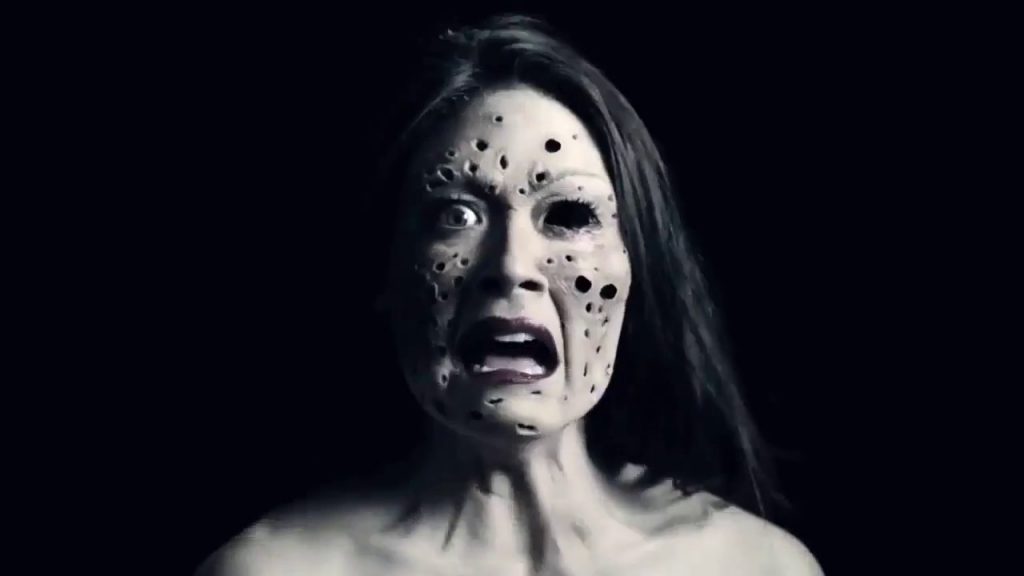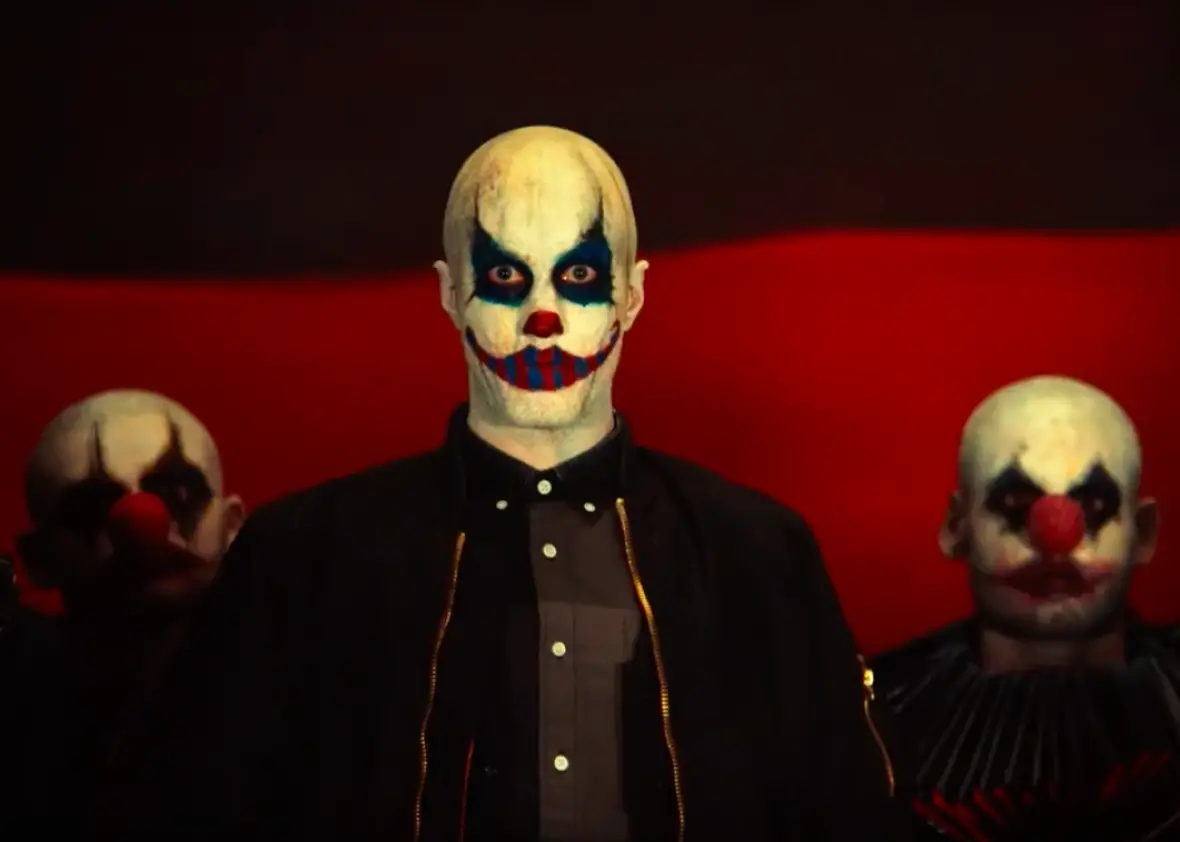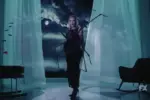Since Season 1 of Ryan Murphy and Brad Falchuk’s horror anthology, “American Horror Story” (AHS), fans have been happy to spend an hour glued to their television, terrified out of their skin.
From the early seasons featuring a haunted house, an insane asylum, a witch coven and a sideshow circus, the subject matter of each separate season has been tailored to more scary-story type horror. The fifth and sixth seasons, however, based around a vampire-infested hotel and the lost colony of Roanoke, respectively, had ties to some real-life events, but still kept a heavy air of that horror movie, not-quite-real feeling. Though each past season has been met with controversy and early criticism, none have been as highly anticipated than this season, “American Horror Story: Cult.”
After the flop of “Roanoke,” fans had been waiting with bated breath for Murphy and Falchuk to drop hints on the new season, knowing the co-producers would have to majorly recover for the failed Season 6. Following the political storm that took over the media during the past election, Murphy shared that the upcoming season would be based around events during and after the election. In July during Comic-Con, Murphy finally revealed the true theme, “Cult.” The teaser trailers for the season included many creepy, chill-inducing scenes of beckoning clowns, bees and people with honeycomb-like holes in their body.

The premiere of “Cult” was horrific and entrancing in a very twisted, maniacal manner. Between Sarah Paulson’s overt liberal, lesbian, Hillary-loving character Ally and Evan Peters’ Trump-obsessed right-wing masochist portrayal of Kai, the political spectrum stretched across the entire cast.
Just the first scene—clips from President Trump’s election campaign—set the tone for the beginning of the episode. Ally, surrounded by her liberal friends and her wife, Ivy, watches in suspense and growing horror as the television proclaims Trump’s triumph over Hillary Clinton. She immediately breaks down, in a clearly dramatic representation of the left’s reaction to Trump’s win. On the flip side, Kai jumps up and down in his darkened living room and even elatedly humps his television during the announcement that Donald Trump is the new president-elect.
From here, the episode transcends into a panic-induced nightmare. Almost all of Ally’s former phobias come back into play, ranging from clowns to trypophobia (the fear of small holes) amongst others. She begins to see clowns everywhere, and endures a psychologically bending episode at the local supermarket, where she “imagines” she is surrounded by people dressed as clowns that are gunning to kill her. Though the clown may seem to be just a plot point to move Ally’s psychotic episodes along, they also serve as a tie into current events pertaining to certain cult-like groups that have a rap for harassing outsiders (cough, KKK, cough).
Not only are cult-y clowns on the loose, but Kai Anderson is beginning to plan a rampage of terror. He harasses the town councilmen at a meeting, protesting that “people love fear” and that the town needs to reduce police forces so people will be forced to face their fears, or some kind of wild argument of the sort. After he is shot down and humiliated by Tom Chang (the head councilman), Kai basically loses his shit and vows his revenge for being mocked.
As if this episode doesn’t already have enough plot points, Ally and Ivy have also hired a full-time nanny, Winter, for their son, Oz. Winter seems to be the picture-perfect liberal, as she worked on Clinton’s campaign, went to art school (and dropped out) and even has the manic pixie dream girl look down. What they don’t know is that Winter, as seen earlier in the episode, lives with Kai, and though we aren’t sure of their exact relationship, they do share a last name. Winter and Kai are also clearly connected in what seems to be Kai’s cult (possibly connected to the clowns?) and partake in secret-sharing that gets dark and a little gross extremely quick.
Winter’s relationship with Oz gets really creepy, really fast. It is clear from the beginning that she is attempting to train and then recruit Oz for Kai’s clown cult. Via the show’s reintroduction of Twisty the Clown (from “Freak Show”) through Oz’s comic book, Winter learns that Oz has a secret love for horror, and uses this to her advantage. She forces Oz to visit a site on the Dark Web, a very real part of the internet that is home to the black market, child pornography, government secrets and essentially any subject that would be banned on the “regular” internet. The site that Winter introduces Oz to is home to videos of human murder and torture, and as Oz unwillingly watches a video of a man being murdered, Winter brings over a nice after-school snack.
Meanwhile, Kai has taken the president’s new election as an invitation to harass migrant workers. Similar to the hike in racist acts on minorities in real-life America, Kai’s action of choice is to mockingly hum “La Cucaracha” while filling a condom with his own urine and verbally harassing the men. After throwing the condom and nailing one of the workers, they rush Kai and beat on him. Luckily for Kai, the actions after the condom-throwing were filmed on a smartphone, and frames the workers in a very bad light. Is this sounding familiar yet?
The pinnacle ending of Episode 1 comes as another one of Winter’s seemingly endless tactics to mentally break Oz. Oz recognizes an ice cream truck parked across the street and watches as a band of clowns (the same that harassed Ally at the supermarket) jump out of the truck and sneak off into the neighbor’s house. With the “help” of Winter, Oz goes to the neighbor’s house and watches as the Changs (the same town councilman that humiliated Kai) are brutally murdered by the clowns. Obviously, police are called to the scene, but the act is deemed a murder-suicide. When Ally and Ivy come home, Oz pleadingly attempts to convince them of the clown story, but Winter reassures them that he has a deep imagination and blames his idea on the Twisty comic book.
“Cult” has already become one of the most gut-wrenching seasons of “AHS” because the scares are so real. Not only is the theme painfully relevant to current culture (political turmoil, white supremacy, fear among minorities/the left), but it also explores horrors that don’t just appear in movies or Stephen King novels. Panic-attack episodes, debilitating phobias and home invasions aren’t too far-fetched for the average person to find scary, even when the lights are on. Murphy and Falchuk love their drama and over-the-top scenes, but the bare bones are already showing: This season follows an all too real American horror story.

















